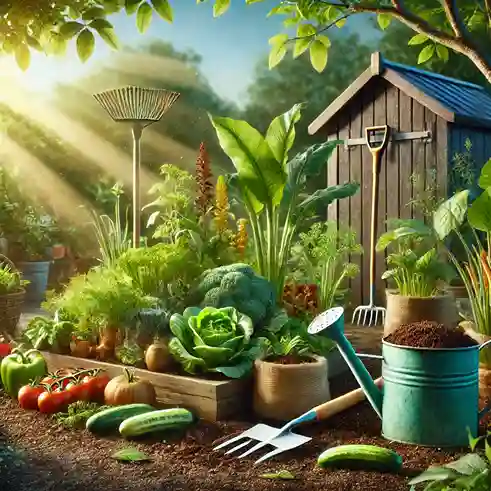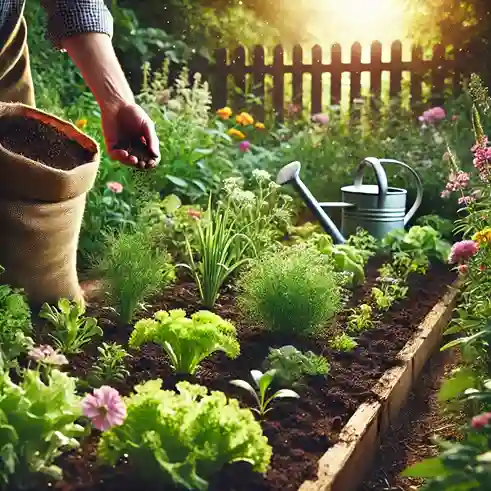Gardening has evolved significantly over the years, and the trend toward organic gardening is stronger than ever. For gardening enthusiasts in the U.S., the shift to eco-friendly practices isn’t just about sustainability—it’s about creating a healthier environment for families and communities. This guide dives deep into how modern gardeners can effectively use organic fertilizers to nurture their plants and ensure optimal growth, all while contributing positively to the planet.
Why Choose Organic Fertilizers?
Organic fertilizers, derived from natural sources, offer a plethora of benefits compared to their synthetic counterparts. They improve soil health, enhance plant growth, and minimize environmental harm. Here are key reasons why you should make the switch:
- Eco-Friendly: Organic fertilizers reduce chemical runoff into waterways, preserving aquatic ecosystems.
- Improved Soil Quality: These fertilizers boost soil’s organic matter, promoting better aeration and water retention.
- Sustainable Growth: With their slow-release nutrients, organic fertilizers ensure steady plant growth over time.
- Safer for Home Use: Ideal for families with children and pets, organic options minimize exposure to harmful chemicals.
Top Organic Fertilizers to Try
Here’s a list of must-have organic fertilizers that are making waves in modern gardening:
- Compost: The gold standard in organic gardening, compost enriches soil with essential nutrients.
- Bone Meal: High in phosphorus, this fertilizer supports root development and flowering.
- Seaweed Extract: Packed with trace elements, seaweed promotes overall plant vitality.
- Manure: A classic choice, it’s excellent for improving soil texture and nutrient content.

How to Use Organic Fertilizers Effectively
Maximizing the benefits of organic fertilizers requires proper application. Follow these tips for best results:
- Know Your Soil: Conduct a soil test to understand its pH and nutrient levels.
- Apply in Moderation: Over-fertilizing can harm plants; stick to recommended quantities.
- Timing is Key: Apply fertilizers during the growing season for optimal absorption.
- Combine with Mulching: Mulch helps retain moisture and further enriches soil when combined with organic fertilizers.
Common Myths About Organic Gardening
Despite its benefits, organic gardening often encounters misconceptions. Let’s debunk a few:
- Organic Fertilizers are Weak: On the contrary, they provide long-lasting nutrients that strengthen plants over time.
- It’s Too Expensive: With options like DIY composting, organic gardening can be cost-effective.
- Limited Options: The variety of organic fertilizers on the market continues to grow, catering to diverse gardening needs.
Conclusion
Embracing organic fertilizers in your gardening routine is a step toward a healthier, greener future. Whether you’re a seasoned gardener or a beginner, incorporating these natural solutions can transform your garden into a thriving oasis. Start your organic gardening journey today and witness the incredible benefits for yourself!

